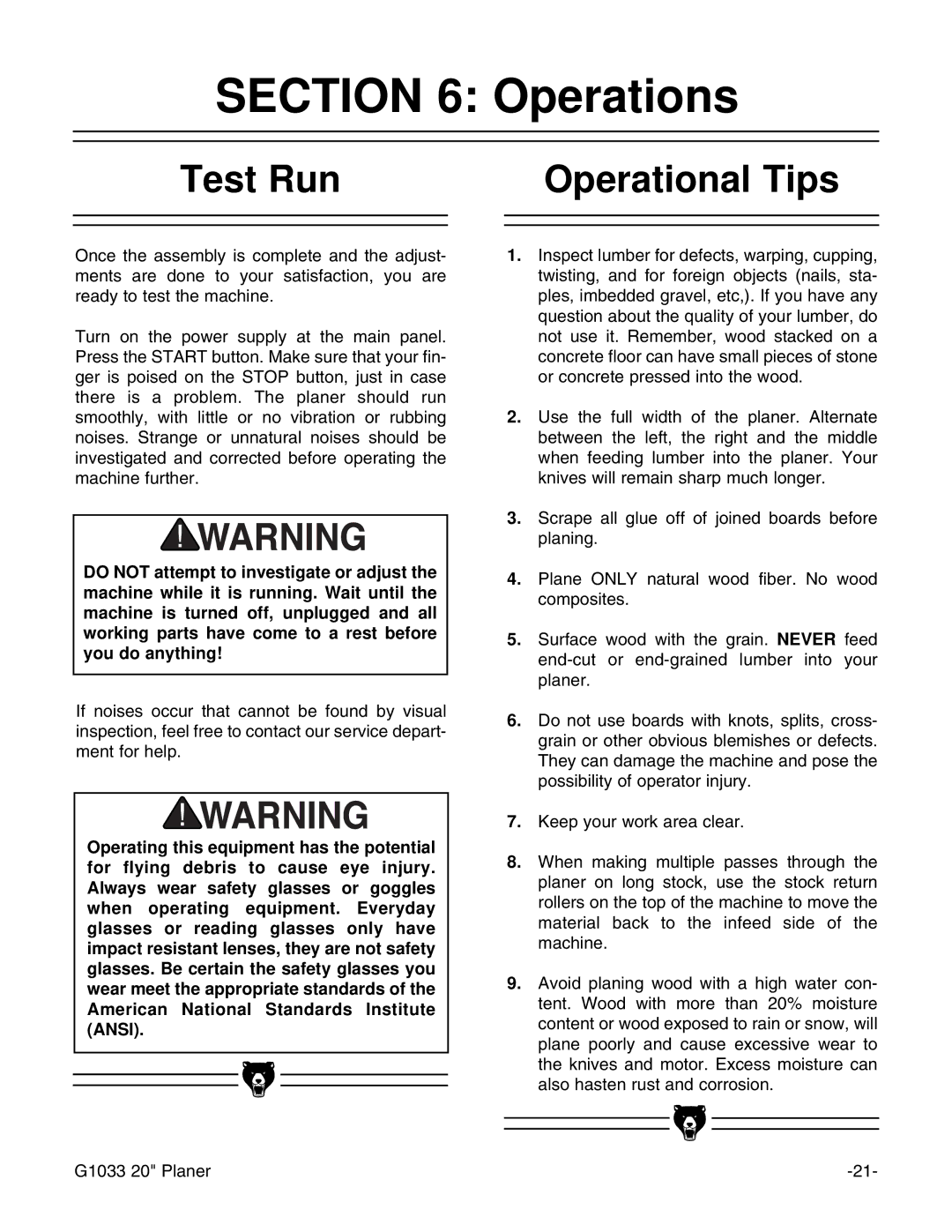
SECTION 6: Operations
Test Run | Operational Tips | |
|
|
|
|
|
|
Once the assembly is complete and the adjust- ments are done to your satisfaction, you are ready to test the machine.
Turn on the power supply at the main panel. Press the START button. Make sure that your fin- ger is poised on the STOP button, just in case there is a problem. The planer should run smoothly, with little or no vibration or rubbing noises. Strange or unnatural noises should be investigated and corrected before operating the machine further.
DO NOT attempt to investigate or adjust the machine while it is running. Wait until the machine is turned off, unplugged and all working parts have come to a rest before you do anything!
If noises occur that cannot be found by visual inspection, feel free to contact our service depart- ment for help.
Operating this equipment has the potential for flying debris to cause eye injury. Always wear safety glasses or goggles when operating equipment. Everyday glasses or reading glasses only have impact resistant lenses, they are not safety glasses. Be certain the safety glasses you wear meet the appropriate standards of the American National Standards Institute (ANSI).
1.Inspect lumber for defects, warping, cupping, twisting, and for foreign objects (nails, sta- ples, imbedded gravel, etc,). If you have any question about the quality of your lumber, do not use it. Remember, wood stacked on a concrete floor can have small pieces of stone or concrete pressed into the wood.
2.Use the full width of the planer. Alternate between the left, the right and the middle when feeding lumber into the planer. Your knives will remain sharp much longer.
3.Scrape all glue off of joined boards before planing.
4.Plane ONLY natural wood fiber. No wood composites.
5.Surface wood with the grain. NEVER feed
6.Do not use boards with knots, splits, cross- grain or other obvious blemishes or defects. They can damage the machine and pose the possibility of operator injury.
7.Keep your work area clear.
8.When making multiple passes through the planer on long stock, use the stock return rollers on the top of the machine to move the material back to the infeed side of the machine.
9.Avoid planing wood with a high water con- tent. Wood with more than 20% moisture content or wood exposed to rain or snow, will plane poorly and cause excessive wear to the knives and motor. Excess moisture can also hasten rust and corrosion.
G1033 20" Planer |
